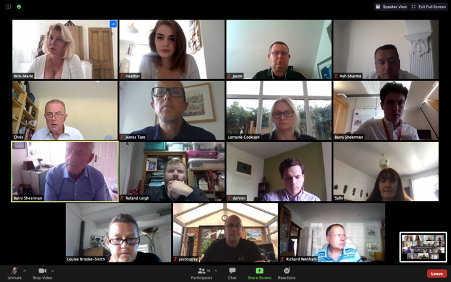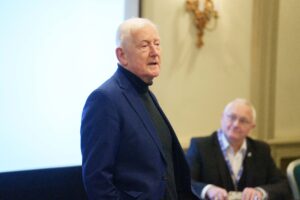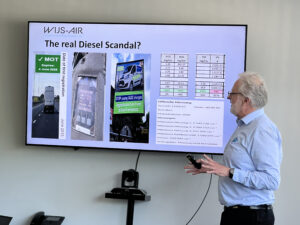WCRAQ’s Chairs of Air Monitoring, Energy, Fuels & Vehicles, Planning and Research Working Parties met together on September 17 to formally establish the research aims and objectives for the Commission.
Professor Roland Leigh established the following Air Monitoring objectives:
- To advise on monitoring requirements across associated sectors, including manufacturer testing, including Euro VI engines; in-service testing such as MOTs; ambient emission monitoring, starting with roadside levels; and receptor monitoring, taken in-vehicle and in-school.
- To advise on requirements for Particulate Monitoring, including the provisions of smaller size fractions (PM1 and ultra-fines), and the potential for composition monitoring.
- To advise on monitoring options against a range of categories including regulatory compliance, quality, long term monitoring value, cost, usability, and value of measurements to various sectors, including healthcare, planning and regulatory compliance.
Richard Wenham established the following objectives for Energy, Fuels & Vehicles:
- To move to efficient use of current fuels that more effective and less impact on air quality.
- To investigate commercial vehicle options: LPG, hydrogen, and shorter-term niche trials. Large vans could be electric with fuel cell operated vehicles.
- To investigate how hydrogen could not only be a low carbon alternative but also solve the issue of particulate matter.
Louise Brooke-Smith established the following Planning Objectives:
- To assess the findings of relevant planning research already undertaken into land use, planning and road air quality, by established bodies, and explore how this can cumulatively improve respective planning statute, guidance and regulations.
- To develop recommendations to improve the design of new homes and the infrastructure that services them, to address the impact of road air quality.
- To explore an air quality matrix for use as part of any home buyers report, reflecting the clear interaction between where we ‘work, live and play’ and our health.
James Tate established the following Research objectives:
- To investigate hard-hitting research on areas across all working parties to raise evidence-based questions in Parliament.
- To monitor driver behaviour in the context of the pandemic: has traffic moved out of the city to rural areas?
- To research how buses could reduce emissions to reform and clean up public transport.
Under the leadership of Barry Sheerman MP, the WCRAQ aims to reduce air pollution created by road users and its profound impacts on the health of people across the UK. More than ever, decisive and urgent action is needed; the World Health Organisation estimates that globally 8 million people die from air pollution annually. The WCRAQ has gathered leading academics, industry experts, third sector organisations and parliamentarians to tackle this growing and existential issue together.
Join the WCRAQ today to shape the quality of the air that we breathe tomorrow.




